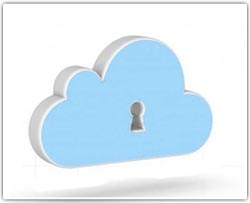Evolving Tax Rules for Cloud Business
 The evolving federal tax laws concerning the taxation of goods and services on the web are causing some problems at the state tax level. As the cloud begins to have a stronger influence on business, there is some concern about how the various states will approach taxation. A recent report on Bloomberg looks at the current concerns many states have regarding the ability to tax transactions that are being challenged by the very notion of how business is conducted on the web. Where does a traditional point-of-sale tax fit in here?
The evolving federal tax laws concerning the taxation of goods and services on the web are causing some problems at the state tax level. As the cloud begins to have a stronger influence on business, there is some concern about how the various states will approach taxation. A recent report on Bloomberg looks at the current concerns many states have regarding the ability to tax transactions that are being challenged by the very notion of how business is conducted on the web. Where does a traditional point-of-sale tax fit in here?
Defining a Transaction
Part of the problem is that the transactions that were once considered the sale of “goods”, such as buying a piece of software off the shelf at your local office supply store, are now more like service transactions when it is part of a service package for your web business being run in the cloud. It can get even more complicated. A good example is when a company in New York purchases server space and cloud-based software from a company in California. This California company could easily have servers in several states. Add a factor such as the New York company having employees in several states that access that software, while traveling via their smart phones or laptops, and you have a taxing nightmare.
Some states have tried to make online retailers such as Amazon change the definition of their business, the end result of which is a split between the company and the state governments. More importantly it has caused Amazon to break agreements with some of its key partners due to the new laws creating an extra layer of taxes for Amazon.
Washington and the States
Verneda Smith is part of a Washington group that represents state revenue departments. He sees the cloud as a new business model that will affect every tax type. With companies like IBM, Amazon, and Google fighting it out over a global market expected to increase from $40.7 billion today to $241 billion by 2020, there is a lot at stake. And Forrester Research, whose trend analysis predicts this growth, sees more of the same in the coming years.
But these companies are not waiting around to see what kind of taxes they will be dealing with; they have gotten involved with the House Judiciary Committee by backing federal legislation that would regulate and limit a state’s authority to tax when it comes to any kind of digital goods and services. Reid Okimoto, a senior member of KPMG LLP, summed it up by saying “It’s akin to the difference between renting a bus and paying to ride on one.”
According to Smith, what is decided in the next little while could be a game changer. He sees a lot at stake and the potential to change the way just about any company on the web does business. How that business is to be taxed and why still remains to be worked out. But anyone considering doing business in the clouds would be well advised to keep an eye on what is decided in Washington.
Our newsletters and blogs are written to provide you with tools and information to meet your IT and cloud solution needs. We invite you to engage in our online community by following us on Twitter @GMOCloud and ‘Liking’ us on Facebook.


